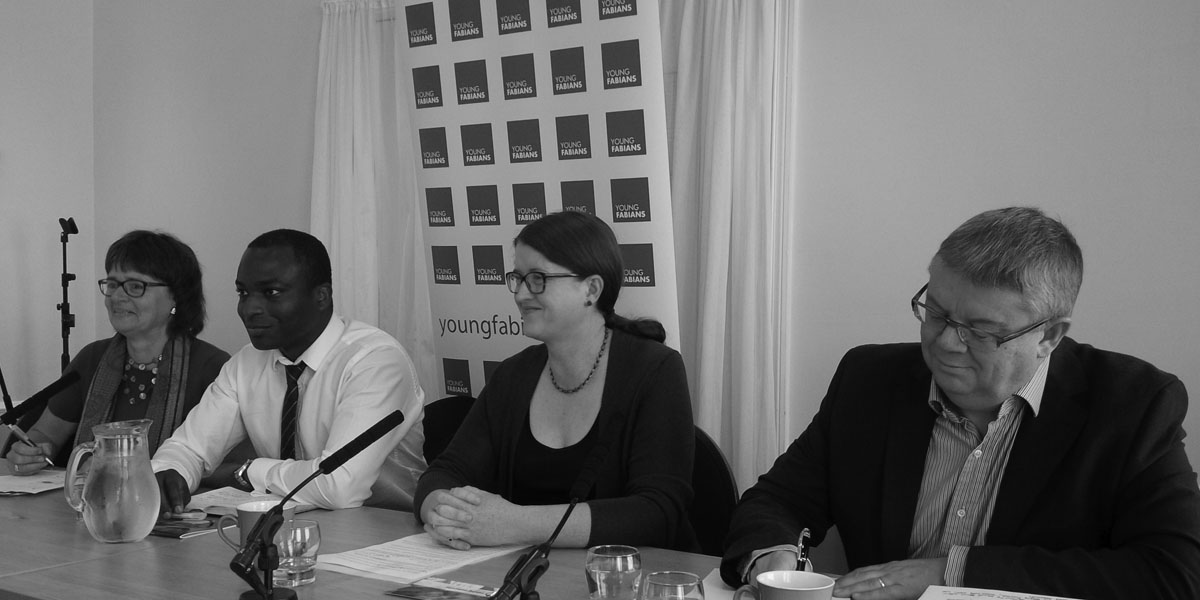Maternity cuts widen the equality gap
Fringe events first thing in the morning are about as attractive as Danny Dyer films and sometimes, as tiring and predictable to sit through. Still, Danny Dyer has just joined EastEnders and a large crowd of Brighton delegates did turn...
Fringe events first thing in the morning are about as attractive as Danny Dyer films and sometimes, as tiring and predictable to sit through. Still, Danny Dyer has just joined EastEnders and a large crowd of Brighton delegates did turn up to a debate on the future of maternal health in austerity Britain on a Monday morning – so maybe there is an appetite for these things after all.
At the Fabian fringe, the Fabians Womens’ Network joined with the Young Fabians Health Network to address the fact that in tough economic times, women not only bear a heavier burden, but policies to close the gender gap generally fall by the wayside.
Professors Francesca Gains and Claire Annesley from Manchester University’s School of Social Sciences have proven as much, investigating the occasions when policies to promote gender equality managed to capture government attention during economic downtimes – and when they have not.
They have shown that it takes high public confidence in the economy to secure government attention for gender equality issues. Now, unless you work for the Chancellors’ office, you would be hard pressed to describe recent economic indicators as ‘positive’.
So there is currently a woeful lack of investment in costly gender equality policies, and that’s why the Young Fabians Health Network is proud to align with institutions like the Royal College of Midwives to combat the lack of investment in Maternity services over the last 3-4 years.
Jon Skewes, Director for Policy, Employment Relations and Communications at Royal College of Midwives remarked at our panel debate at the Labour fringe that because of a dearth of midwives, new mothers are being sent home too early. They find feeding difficult and aren’t getting enough help. They’re in pain, or unsure of how to care for their babies and Midwives & Maternity teams feel frustrated and helpless under the increasing pressure.
As academic studies show the economic progress of women has stalled, the 2015 battle lines for women’s votes has been set: childcare promises from Labour, free school meals from Lib Dems, married tax breaks from the Tories. Improving maternity services can be a deadly and effective weapon.
Director of Maternity Action, Rosalind Bragg explained that “there is a growing sense of frustration at the short-sighted nature of cuts to NHS maternity services”. In fact, the Care Quality Commission and the RCM have each raised the alarm about midwifery numbers. The UK has been experiencing a baby boom. Between 2001 and 2010, the number of babies born each year has increased by 21%. During this time, midwifery numbers have increased by just 15%.
Furthermore, pregnancy discrimination has increased since the economic downturn. In 2005, an estimated 30,000 women each year lost their jobs as a result of pregnancy discrimination and latest figures put this number at almost double.
Of those women who lost their jobs as a result of pregnancy discrimination, 8 per cent pursued formal action and only 3 per cent took their claims to the employment tribunal. That’s dismal. Women face significant barriers to exercising their rights including: competing demands of motherhood, access to advice services, employment tribunal fees and negative attitudes towards maternity rights.
The Young Fabians Health Network think we’ve got clear election-winning solutions to address pregnancy discrimination in times of austerity: adequate funding for advice agencies; dropping planned employment tribunal fees; and clear statements from Government on the value of maternity and parental rights to families and the economy.
All our panellists, including NCT’s Senior Policy Adviser Elizabeth Duff conceded that the Government’s response to the growing problem within maternity services did not inspire confidence. Although the then (May 2012) Minister for Health announced that women will have one named midwife to oversee their care during labour and birth, there has been no framework for implementation to support this superficial announcement.
Women deserve a stronger voice, particularly when they are giving birth. Britain can do grandma sweater. That’s Danny Dyer cockney rhyming slang for ‘better’, by the way.
Adebusuyi Adeyemi is Chair of the Young Fabians Health Network
